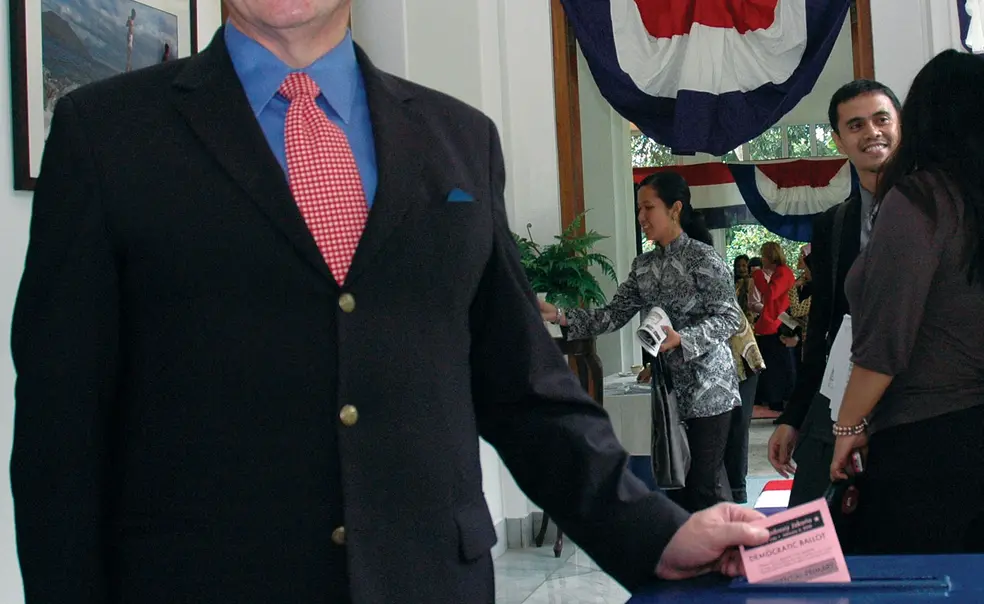Alumni Profile: Cameron Hume '68, boosting U.S.-Islamic ties
Veteran diplomat Cameron Hume ’68 helped negotiate the end to Mozambique’s civil war in 1992, survived a rocket attack on his apartment in Beirut in the early 1980s, and was booted out of Libya following a 1969 coup led by Mu’ammar al-Gadhafi. But he’s probably never been in a more critical position than the one he landed in August 2007, as ambassador to Indonesia.
Indonesia is the most populous Muslim nation, and moderate Islam has won the day there, for now. Just 10 years after the fall of dictator Suharto, democracy also has gained a strong foothold. And Indonesia has the second most important reservoir of tropical forests, after Brazil. But because much of its forests are being logged and burned for agriculture, Indonesia is the third-largest contributor to global warming.
Hume’s role nurturing conservation and a moderate Islamic democracy has potentially rich returns. “If this continues to be a success story, it really improves the picture enormously because the eastern end of the Islamic world is anchored by a society that is being successful with the problems of our age,” he says.
Hume admits he knew little about Indonesia before he agreed to take the job and arrived a few months later, without ever having seen the country. He learned quickly. The embassy still maintained a travel warning for Americans in Indonesia due to a series of terrorist bombings, and a joint Indonesia-East Timor commission had not yet released an account of the 1999 conflict in East Timor, where militias tried to hijack an independence vote.
Last spring, some high-level Indonesian officials called for the closure of a U.S. naval medical facility in Jakarta — a crucial research site for Avian flu — accusing the lab of engaging in espionage and research for biological warfare. Hume called a press conference to deny the accusations and then offered a first tour of the lab to restive Indonesian parliamentarians. Calls to close the lab have quieted.
Tense moments like these have become commonplace during Hume’s four decades in foreign service, beginning with his quick exit from Libya when he was a Peace Corps worker fresh from earning a Princeton English degree, and continuing through stints as ambassador to Algeria, political counselor to the embassy in Syria, and head of the U.S. mission in war-torn Sudan in 2006. “People know I’ve been willing to go to places with conflict,” says Hume, who speaks Arabic.
But Hume has witnessed a decrease in violence in Indonesia. He’s worked to keep peace deals alive in the provinces of Aceh and Papau. Meanwhile, the Indonesian government accepted the July release of the East Timor report, spurring the military to take responsibility for atrocities there. And after a three-year absence of terrorist attacks and convictions for the 2002 Bali bombers (three militants were executed in November), the United States in May lifted its travel restrictions.
A future role may see Hume bolstering perhaps the shakiest of U.S relations in the Islamic world: He’d like to help re-establish a diplomatic post in Iran. “It would be the ultimate challenge,” he says.
Oakley Brooks ’99 is writing a book about natural disasters in Sumatra.












No responses yet